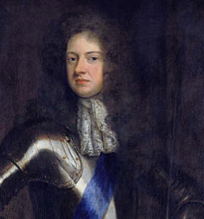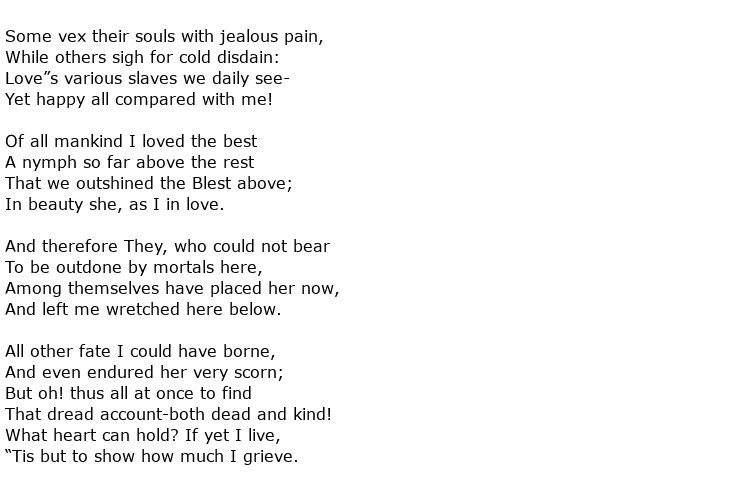 John Sheffield was an aristocratic English poet and politician of the late Stuart period. Although sometimes known as Lord Mulgrave, which was his original title, his full title was the 1st Duke of Buckingham and Normandy with post-nominals of KG and PC. He rose to great heights in the Tory party, serving as Lord Privy Seal and Lord President of the Privy Council, although much of his political life was turbulent and insecure due to the influence of his many enemies in government and at the royal court.
John Sheffield was an aristocratic English poet and politician of the late Stuart period. Although sometimes known as Lord Mulgrave, which was his original title, his full title was the 1st Duke of Buckingham and Normandy with post-nominals of KG and PC. He rose to great heights in the Tory party, serving as Lord Privy Seal and Lord President of the Privy Council, although much of his political life was turbulent and insecure due to the influence of his many enemies in government and at the royal court.
He was born on the 7th April 1648, the son of the 2nd Earl of Mulgrave. On the death of his father he initially became the 3rd Earl of Mulgrave and then, in 1658, the 5th Baron Sheffield. As was the custom of the time, the young man took up military service at the age of 18, serving on board a ship of the line during hostilities against the Dutch. He served with distinction and was made Knight of the Garter in 1674. It soon emerged though that he had enemies at court, having taken the side of the Duke of York who was one of the main persecutors of the Duke of Monmouth, the nobleman who was executed for plotting to depose the King. Sheffield was banished from court in 1682 but regained favour later when James II took the crown. The king appointed him Lord Chamberlain.
Further government unrest saw Sheffield being dismissed from the Privy Council in 1696 but, in 1703, he was once again granted royal favour, becoming the Duke of Buckingham and Normandy. His life seemed to be full of turbulence and insecurity and he often attacked his enemies with scornful written accounts in both prose and verse. One piece, called Essay on Satire, was a vicious diatribe against a number of noble personages. He also rewrote some of Shakespeare’s works, including the splitting of Julius Caesar into two parts: Julius Caesar and Marcus Brutus, with choruses in between each act. He collaborated on this, and other projects, with his friend and fellow poet Alexander Pope.
Sheffield also found the time to write romantic, wistful poetry, a good example being On One Who Died Discovering Her Kindness. The poem is reproduced here:

Shortly after his death a collection of his work was published by Edmund Curl but it transpired that he had no authority to do so. Two years later Sheffield’s friend Pope revised this although he was forced to omit two pieces – The Feast of the Gods and Account of the Revolution – because of their alleged Jacobite tendencies. Further editions came out in subsequent years and Samuel Johnson included some of this work in his anthologies of British poets.
Baron Sheffield married three times during the period 1685-1705 and finally produced an heir to his title with his third wife, Lady Catherine Darnley. His son Edmund became the 2nd Duke of Buckingham but only survived for fourteen years after his father’s death. As he was unmarried the title died with him.
John Sheffield, Duke of Buckingham died at the age of 72 on the 24th February 1721 at his London home in St James Park. This property stood on the site that is now occupied by the Queen’s residence, Buckingham Palace.

